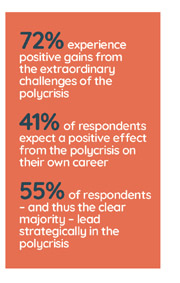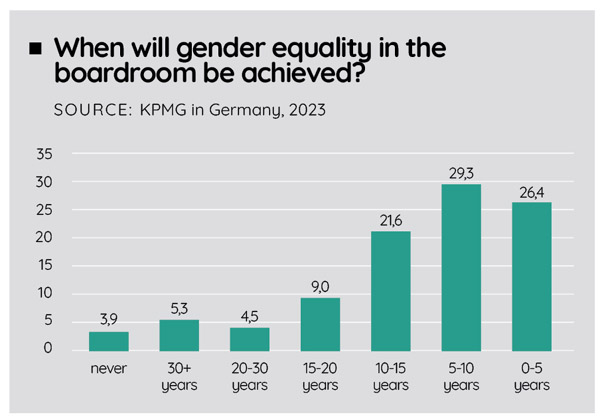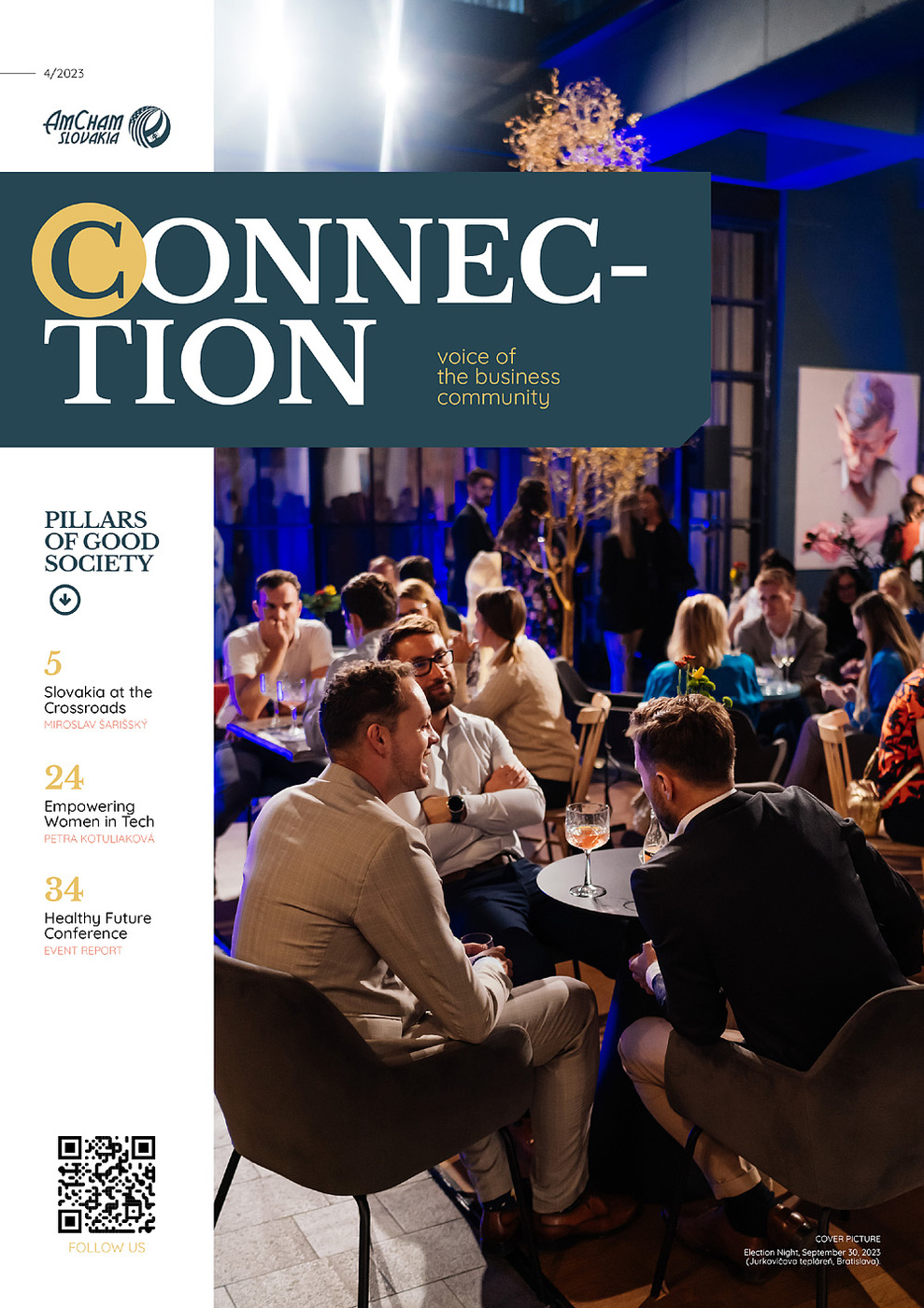Diversity and inclusion are considered crucial factors for sustainable business growth. This was confirmed by 75 percent of the 839 top female managers from companies around the world, who took part in KPMG’s Global Female Leaders Outlook (GFLO). 839 participants from 53 countries took part in the survey, which was conducted between April 1 and May 21, 2023.
Three quarters of the study’s respondents expect further progress in the area of diversity and inclusion in the coming years. Three out of four female executives expect gender equality in companies to be achieved in 15 years or sooner. But there are regional differences: it is striking that top female managers in North America show considerably higher levels of optimism compared to their counterparts in other regions.
The issue of the gender pay gap is also present. According to data from the World Economic Forum, the pay gap for leadership roles is currently 38 percent. As much as 45 percent of the participants report that there is transparency in their companies with regard to equal pay, while 33 percent report a lack of transparency.
Equality is a central aspect of ongoing business transformation. Companies recognize that diversity is becoming a fundamental success factor and female leaders play an important part in making our world more sustainable.
Importance of networks increases
When it comes to the structural conditions for a successful career, the relevance of the personal network is increasing significantly. In 2018, 41 percent of respondents emphasized the personal network, now it is 57 percent. This may be due to the fact that discrimination and prejudice still persist, with 64 percent of respondents reporting being confronted with gender stereotypes in the past three years. Women’s networks are forming as a counterpart to male-dominated networks in many organizations.
Focus on strategic leadership for career progression
According to top female managers, taking the next step in their career without having to change companies will be possible more frequently in the future. In the past, 80 percent of those surveyed have already left an employer at least once for a higher position.
When considering how to achieve equality, it is important to understand which career factors are ranked most highly by today’s top female managers. Two personality traits that participants considered key for their career were strategic thinking and leadership skills. In comparison, five years ago, top female managers considered communication skills the most important. These were now ranked in the third place.
 Top female managers view a polycrisis as an opportunity
Top female managers view a polycrisis as an opportunity
In addition to aspects of career progression and equality, this year’s GFLO explored the question of what growth prospects female executives currently see for their companies and themselves personally. Despite the ongoing crises and uncertainties, the outlook is positive – 84 percent of the female participants surveyed expect growth for their company in the next three years. Although the complexity of tasks has increased (90 percent), almost two-thirds (72 percent) also see opportunities for their own careers in these challenging times.
Good leadership is essential during times of polycrisis. Top female managers have adapted and sharpened their management styles in response to uncertainties and risk situations. 43 percent of them now act in a more agile manner and 36 percent more strategically compared to before. Confidence in one’s abilities is also the basis for an optimistic personal outlook: four out of ten female leaders believe, that the polycrisis will be positive for their next career move.
Companies need to strengthen their resilience in the face of geopolitical and economic risks and top managers need to adapt their leadership styles in order to succeed. Top female managers are up to the task of leading their companies through uncertain times and despite demanding workloads and long working hours, they even consider polycrisis as an opportunity to showcase their competence.
Female leaders take a people-first approach
To reinforce their positive leadership, promote motivation and team spirit, top female managers are currently demonstrating a greater commitment towards their employees, with 84 percent investing more time in regular check-ins.
More than half of the survey participants also expect the headcount of their business to increase in the next three years. However, the shortage of skilled workers continues to be a major hurdle in recruiting. This makes developing the existing workforce even more important. Almost three quarters of respondents put investing in employee development ahead of investment in new technologies.

Ivana Mazániková, Partner, Audit, KPMG in Slovakia



Follow us